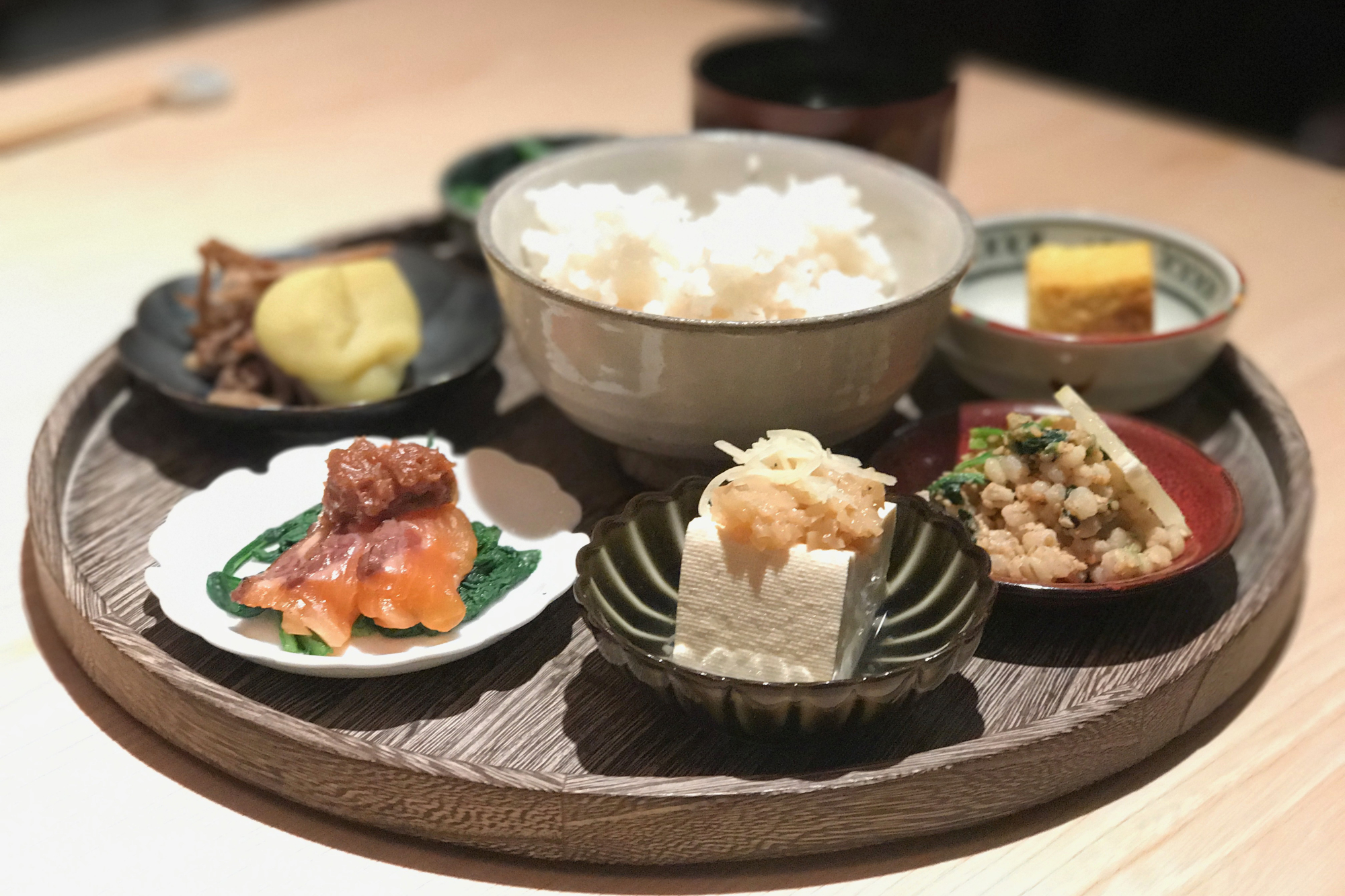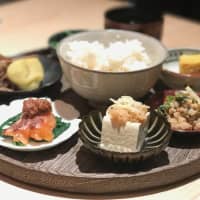From the outside, you might take Lakan-ka for just another of the smart-casual cafe-dining establishments that proliferate on the Aoyama-Jingumae side of town. But behind the sleek, modern facade with its pet-friendly terrace, this new arrival is doing things a bit differently.
Instead of the usual Italian-inflected fare, the menu here is based on light, wholesome Japanese cooking. The set lunch menus feature a choice of rice or other grains, accompanied by colorful, seasonal side dishes. You'll also find a small range of take-out bento. And in the evening you can linger in the second-floor dining area sipping on sake, nibbling on obanzai (small plates — think Japanese antipasti) as well as more substantial main dishes.
But where Lakan-ka really stands out is that it shuns all sugar, refined or otherwise. Instead, it uses an extract of monk fruit ("luo han guo" in Mandarin; "lakanka" in Japanese), a gourd native to southern China, with a sweetness said to be around 300 times more concentrated than that of sugar.
In China, monk fruit has a reputation as an aid to longevity. That is as good a reason as any to drop in for the two-tier dessert tray served as part of afternoon tea at Lakan-ka.
Lunch (till 5 p.m.) from ¥1,200; dinner (from 5 p.m.) a la carte; irregular closing days; English menu; English spoken




















With your current subscription plan you can comment on stories. However, before writing your first comment, please create a display name in the Profile section of your subscriber account page.